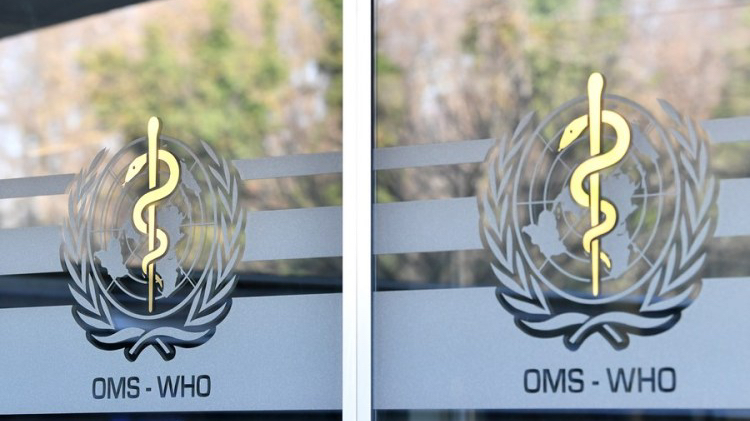
Logos of the World Health Organization (WHO) at the WHO headquarters in Geneva, Switzerland, January 30, 2023. /Xinhua
Logos of the World Health Organization (WHO) at the WHO headquarters in Geneva, Switzerland, January 30, 2023. /Xinhua
Editor's note: Andy Mok is a research fellow at the Center for China and Globalization. The article reflects the author's opinions and not necessarily the views of CGTN.
With the World Health Organization (WHO) on May 5 announcing the end of the COVID-19 pandemic as a public health emergency of international concern, it is time for the global community to reflect on the lessons learned from this unprecedented crisis. Among the most striking revelations is the effectiveness of China's response to the pandemic, which has challenged long-standing Western views on pandemic control. As we look toward the future, it is crucial to embrace diverse strategies and foster international collaboration to ensure better preparedness for future crises.
The Western preconceptions about pandemic control and response have been called into question by China's successful strategies in containing COVID-19's spread. Ramping up testing capacity, and prioritizing contact tracing, were initially met with skepticism by Western observers. But, these measures did help curb the virus's spread, saving many lives. By recognizing the value of China's approach and incorporating the lessons learned, the global community can broaden its perspective on public health management and develop more effective strategies for future emergencies.
Liang Wannian, who is the head of the COVID-19 response expert panel under the National Health Commission, offers valuable insights into the science-based and adaptive approach that underpinned China's pandemic response. According to Liang, the nation's strategic focus on monitoring viral mutations, improving treatment capabilities, and targeting high-risk groups for vaccination were essential to its success. By acknowledging and learning from China's evidence-based strategies, the international community can strengthen its preparedness for future pandemics and enhance the resilience of global health systems.
Building a united front for future crises requires an honest assessment of the strengths and weaknesses of different countries' responses to COVID-19. While China's pandemic response has been largely successful, there are undoubtedly areas where improvements can be made. By fostering a spirit of international collaboration and shared learning, the global community can develop a more robust and effective approach to public health emergencies. This means not only learning from China's experience but also examining the responses of other nations and drawing on their successes and failures to develop a comprehensive understanding of effective pandemic management.

A poster showing measures against the COVID-19 is seen in the Grand Place in Brussels, Belgium, December 27, 2021. /Xinhua
A poster showing measures against the COVID-19 is seen in the Grand Place in Brussels, Belgium, December 27, 2021. /Xinhua
Embracing diverse strategies and experiences in pandemic response is essential for better preparedness in future crises. By recognizing the achievements of China's pandemic response and incorporating Liang Wannian's insights, the international community can encourage the development of innovative and adaptive strategies tailored to specific contexts. This approach will ultimately lead to a more robust global response to public health emergencies, ensuring that the world is better equipped to face the challenges of future pandemics.
As the WHO brings the official COVID-19 public health emergency to a close, it is essential that we do not let our guard down. The end of the pandemic does not mean that the threat of future public health crises has disappeared. Rather, it serves as a reminder that the global community must remain vigilant and work together to prepare for the inevitable challenges that lie ahead.
By reevaluating Western perceptions of pandemic control and learning from China's experience, we can foster a spirit of international collaboration and shared learning that will prove invaluable in the face of future crises. As Liang has highlighted, the key to success lies in adopting a science-based and adaptive approach to public health management. By embracing diverse strategies and experiences, the global community can build a united front that will ensure a more robust and resilient response to public health emergencies in the years to come.
In conclusion, the end of the COVID-19 pandemic offers an opportunity for reflection and growth. By learning from China's response and embracing a spirit of international collaboration, we can develop a more comprehensive and effective approach to pandemic preparedness. As we face the challenges of the future, it is crucial that we remain united, drawing on the diverse experiences and strategies of nations around the world to create a more robust and resilient global health system.
By acknowledging the successes and challenges of different pandemic responses, we can work together to ensure that we are better prepared for the public health crises that lie ahead. In doing so, we will not only safeguard the health and wellbeing of our global community but also promote a more inclusive, cooperative, and innovative approach to public health management in the years to come.
(If you want to contribute and have specific expertise, please contact us at opinions@cgtn.com. Follow @thouse_opinions on Twitter to discover the latest commentaries in the CGTN Opinion Section.)